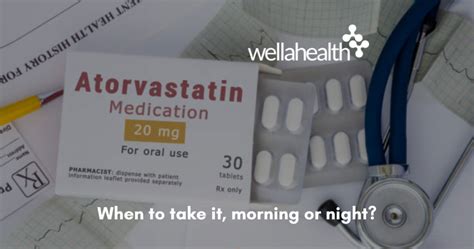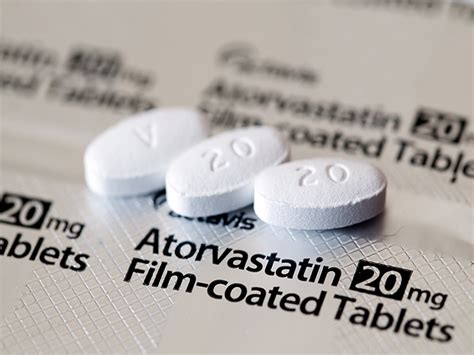Intro
Learn about Atorvastatin, a statin medication, and its uses in lowering cholesterol, preventing heart disease, and managing hyperlipidemia, with guidance on dosage, side effects, and interactions.
The world of pharmaceuticals is vast and complex, with numerous medications available to treat a wide range of health conditions. One such medication is atorvastatin, a commonly prescribed drug used to lower cholesterol levels and prevent cardiovascular disease. As with any medication, it is essential to understand the benefits, risks, and proper usage of atorvastatin to ensure safe and effective treatment. In this article, we will delve into the world of atorvastatin, exploring its mechanisms, benefits, and potential side effects, as well as providing guidance on how to take the medication and what to expect during treatment.
Atorvastatin is a type of statin, a group of drugs that work by inhibiting the production of cholesterol in the liver. By reducing the amount of cholesterol produced, atorvastatin helps to lower low-density lipoprotein (LDL) cholesterol, also known as "bad" cholesterol, and increase high-density lipoprotein (HDL) cholesterol, or "good" cholesterol. This, in turn, helps to prevent the buildup of plaque in the arteries, reducing the risk of heart attacks, strokes, and other cardiovascular events. With its ability to effectively manage cholesterol levels, atorvastatin has become a staple in the treatment of hypercholesterolemia, a condition characterized by high levels of cholesterol in the blood.
The importance of managing cholesterol levels cannot be overstated. High cholesterol is a significant risk factor for cardiovascular disease, which is one of the leading causes of death worldwide. By taking atorvastatin, individuals can significantly reduce their risk of developing cardiovascular disease, as well as slow the progression of existing disease. Furthermore, atorvastatin has been shown to be effective in reducing the risk of major cardiovascular events, such as heart attacks and strokes, in individuals with established cardiovascular disease. With its proven track record and relatively safe side effect profile, atorvastatin has become a widely prescribed medication for the management of hypercholesterolemia.
How Atorvastatin Works

Benefits of Atorvastatin
The benefits of atorvastatin are numerous and well-documented. Some of the key benefits include: * Reduced risk of major cardiovascular events, such as heart attacks and strokes * Lower levels of LDL cholesterol and higher levels of HDL cholesterol * Reduced risk of cardiovascular disease in individuals with established disease * Anti-inflammatory properties, which can help to reduce the risk of cardiovascular events * Effective in managing hypercholesterolemia, a condition characterized by high levels of cholesterol in the bloodSide Effects of Atorvastatin

It is essential to note that these side effects are relatively rare and usually occur in individuals who are taking high doses of atorvastatin or have underlying medical conditions. If you experience any side effects while taking atorvastatin, it is crucial to consult with your doctor to determine the best course of action.
Contraindications and Interactions
Atorvastatin is contraindicated in individuals with certain medical conditions, such as: * Liver disease * Kidney disease * Pregnancy or breastfeeding * Hypersensitivity to atorvastatin or other statinsAtorvastatin can also interact with other medications, such as:
- Warfarin, a blood thinner
- Digoxin, a medication used to treat heart failure
- Erythromycin, an antibiotic
- Cyclosporine, an immunosuppressant
It is essential to inform your doctor about any medications you are taking, including over-the-counter medications and supplements, to minimize the risk of interactions.
Taking Atorvastatin

Monitoring and Follow-Up
Regular monitoring and follow-up are crucial to ensure the safe and effective use of atorvastatin. Your doctor will typically schedule regular blood tests to monitor your cholesterol levels and liver function. It is essential to attend these follow-up appointments to ensure that the medication is working effectively and to minimize the risk of side effects.Atorvastatin and Diet

Exercise and Atorvastatin
Regular exercise can help to improve the effectiveness of atorvastatin and reduce the risk of cardiovascular disease. Here are some exercise tips to help you get the most out of atorvastatin: * Aim for at least 150 minutes of moderate-intensity aerobic exercise per week * Include strength-training exercises in your routine to improve muscle tone and bone density * Choose exercises that you enjoy, such as walking, jogging, or cycling * Consult with your doctor before starting any new exercise programAtorvastatin and Pregnancy

Atorvastatin and Breastfeeding
Atorvastatin is also contraindicated in breastfeeding, as it can pass into breast milk and cause harm to the baby. If you are breastfeeding, it is essential to inform your doctor, as they may recommend alternative treatments or adjust your dosage to minimize the risk of side effects.Atorvastatin and Children

Atorvastatin and Older Adults
Atorvastatin can be used in older adults, but it is essential to use the medication with caution. Older adults may be more susceptible to side effects, such as muscle pain and liver damage. If you are an older adult taking atorvastatin, it is essential to monitor your cholesterol levels and liver function regularly to minimize the risk of side effects.Conclusion and Final Thoughts

We hope this article has provided you with a comprehensive understanding of atorvastatin and its uses. If you have any further questions or would like to share your experiences with atorvastatin, please do not hesitate to comment below. Share this article with your friends and family to help them understand the importance of managing cholesterol levels and reducing the risk of cardiovascular disease.
What is atorvastatin used for?
+Atorvastatin is used to lower cholesterol levels and prevent cardiovascular disease.
What are the common side effects of atorvastatin?
+Common side effects of atorvastatin include muscle pain, liver damage, and increased risk of diabetes.
Can atorvastatin be used in pregnancy?
+No, atorvastatin is contraindicated in pregnancy, as it can cause harm to the developing fetus.
Can atorvastatin be used in breastfeeding?
+No, atorvastatin is contraindicated in breastfeeding, as it can pass into breast milk and cause harm to the baby.
What is the recommended dosage of atorvastatin?
+The recommended dosage of atorvastatin varies depending on the individual's cholesterol levels and medical history. It is essential to consult with a doctor to determine the best dosage.
